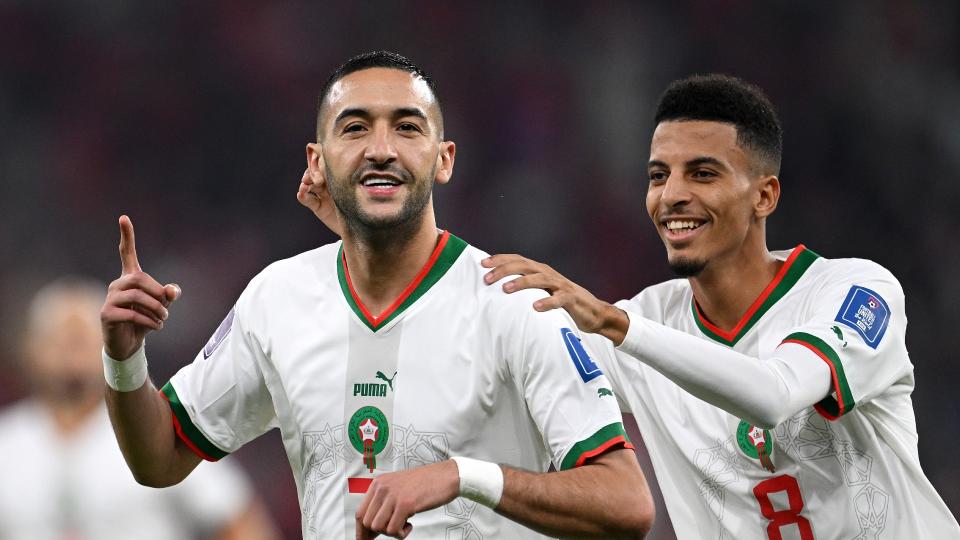The Qatar World Cup, which ended on Sunday, December 18, 2022, left us with memories that will linger for a long time to come.
The final match between defending champions France and Argentina served up a scintillating display of football drama that benumbed our imagination. In a game that lasted the full stretch of extra time, there were stunning comebacks and end-to-end play that had to be settled by the lottery of penalty kicks won by Argentina.
In the course of the games, there were upsets by some of the unfancied teams against favorites, which served to make the tournament more interesting. The first of these was Saudi Arabia’s defeat of the eventual winners, Argentina, in their first group stage match at the Lusail Stadium on November 22, 2022.
But by far the most notable development of the one-month tournament was the exploits of the Atlas Lions of Morocco, who qualified to play in the semi-final.
Qatar 2022 ranks third in fan attendance record
This marked the first time a team from Africa will achieve such a feat in the history of the tournament. Although Morocco was defeated by Croatia, the world hailed Morocco for defeating three European footballing superpowers in quick succession – Belgium, Spain and Portugal – with the last two at knockout stages of the tournament. Morocco’s exploits indicate that in the near future, an African team will not only make it to the final but also likely win the global sports’ most coveted trophy.
But as most observers know, Morocco’s achievements were no coincidence. Football in Morocco, like many things in the North African country, has gone through major developments, from the provision of infrastructure to adequate training and welfare for the players, who are nurtured and encouraged to give their best to their clubs. Also, the Moroccan football authorities have a well-structured scouting system that identifies and encourages diaspora born Moroccans to come home and play for the country.
The Moroccan football system is thus one of the most developed in Africa, a fact that is underlined by the sterling performance of its clubs in continental football competitions. Moroccan teams like Raja Casablanca etc have won such competitions several times. It is also no wonder that Morocco is almost always one of the consistent teams that represent Africa at the world competitions.
This contrasts with Nigeria, which could not even qualify for the Qatar World Cup. For some time now, football development in Nigeria, which had shown great promise not too long ago, seems to have petered out. Due to our exploits in African and continental football competitions, we were once ranked and marked amongst the top 10 footballing countries in the world.
The bedrock of our football development was identifying and nurturing youthful talent. Through this, Nigeria won laurels in continental and global football, blazing the trail for other African countries to follow. The development of our football from the youth level through such initiatives like the Youths Sport Federation of Nigeria (YSFON), the Academicals, and annual national sports festivals, ensured a ready and steady availability and supply of talents to our national football teams from age grade level to the senior levels.
Regrettably, most of these salutary initiatives in our football system have been left to atrophy.
We believe that sport is one of the very important pillars of soft power projection that Nigeria, as one of the leading countries in Africa, should work on. We have both the talents and the resources to optimally develop and utilise this aspect of our country for national development.
As one of the takeaways from our failure to make it to the Qatar World Cup, we should earnestly begin to overhaul our sport development programmes in order to harness the abundant talents that exist in the country. This will not only help restore our sporting glories but importantly also help to develop our teeming youths and direct their prodigious talents to more useful pursuits for the nation into the future. Nigeria would also need to learn from Morocco by actively scouting foreign-born Nigerian talent in European cities and encouraging them to opt for playing for Nigeria. Nigeria must learn that in football, as in everything else, progress is seldom an accident.
The Qatar World Cup was also notable for the negative pressure and influence of politics and propaganda exhibited by Western countries and their media. As the competition was taking place for the first time in a Muslim country in the Middle East, the Western media tried to impose their views on Qatar.
This was noted especially in the issue of gay rights and the banning of alcohol by the Qatari authorities. While the Qatari government was glad to host the tournament and spent billions of dollars in providing the infrastructure, it however resisted pressures to allow the presence of gays and alcohol in the country. While we agree that Qatar must answer any legitimate questions about its violations of human rights, we commend it for standing firm in defence of its culture.
Countries must be free to hold on to what they believe and not have the values of others imposed on them. Western governments and their media must also better appreciate the differences in a complex and diverse world.

 Join Daily Trust WhatsApp Community For Quick Access To News and Happenings Around You.
Join Daily Trust WhatsApp Community For Quick Access To News and Happenings Around You.